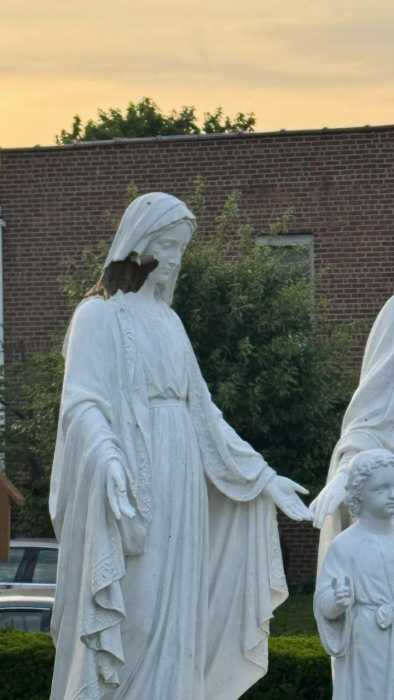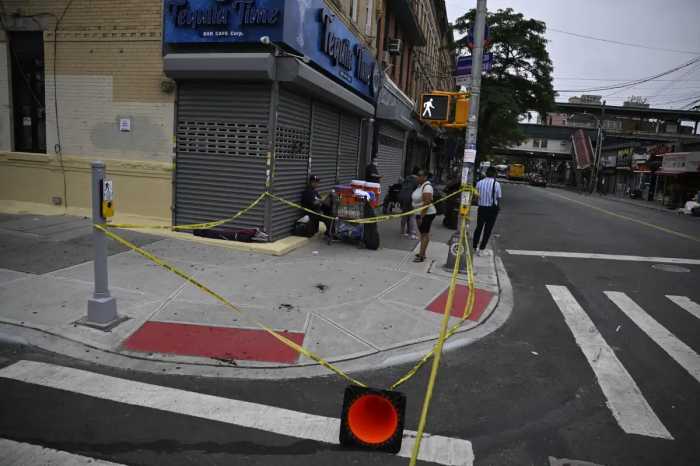By Carlotta Mohamed
Two Queens landlords were hit with a lawsuit after allegedly engaging in a fraudulent scheme to avoid paying more than $470,000 in property taxes, state Attorney General Barbara Underwood announced Tuesday.
The landlords — Ram Cohen and Eldad Cohen — along with their real estate company ERC Holding, LLC, are accused of participating in a year-long scheme manipulating tenants’ leases, deceiving regulating agencies, and profiting off of the sale of a 10-unit apartment building in Fresh Meadows, according to Underwood.
“As we allege, these landlords fraudulently secured hundreds of thousands of dollars in tax breaks by illegally abusing the 421-a programs and deceiving tenants about their rights,” said Underwood. “We have zero tolerance for landlords who try to defend regulators and their own tenants — and we won’t hesitate to prosecute those who try to line their pockets at the expense of New Yorkers.”
According to Underwood, the Cohens built and constructed the 10-unit apartment building — located at 71-44 160th St.— from 2006 to 2009. They had applied to the New York City Department of Housing Preservation and Development for a tax exemption under section 421-a of the Real Property Tax Law, which reduces property taxes for eligible new construction condominiums and rentals.
Although the landlords had intended to make the building a condominium, in 2009 they decided to operate the building as a rental, Underwood said.
The 421-a tax exemption rules required the Cohens to obey rent stabilization laws when renting out apartments; however, the lawsuit alleges that they never did. Instead, they gave tenants unregulated leases, which didn’t offer any of the tenancy protections guaranteed by rent stabilization laws.
In 2014, the attorney general’s office directed the Cohens to register the apartments with the State Division of Housing and Community Renewal and begin treating tenants as rent-stabilized — as is required in order to obtain the tax benefit.
The lawsuit stated the Cohens allegedly continued their fraud by making it appear they were moving to comply with rent stabilization laws, without actually treating their tenants as rent-stabilized or registering the proper rents.
The lawsuit further alleges that the Cohens continued their fraud by listing inflated rents on all leases while having tenants agree in a separate rider to pay a lower rent.
The Cohens allegedly kept the lower rent riders secret from regulating agencies, banks, and a prospective purchaser to make it appear that the building was more valuable than it actually was, according to Underwood.
When the Cohens sold the building in 2016 for $3,750,000, they never disclosed the true rents paid by tenants to the purchaser or the regulating agencies.
The lawsuit also alleges that the Cohens are currently running another fraudulent scheme paying their employees’ wages through a corporation registered in the name of a property manager of another Queens building. Rather than pay their employees directly, with payroll taxes withheld, they allegedly pass employees’ wages through the shell corporation, off the books.
The attorney general’s lawsuit seeks to bar the Cohens from doing business in the New York Real Estate Industry. They will also be required to repay all illegally avoided property taxes and profits from the sale of the building, as well as civil penalties and costs.
“As part of the ongoing coordinated enforcement activities of the Governor’s Tenant Protection Unit, the State continues to work with the attorney general’s office and New York City’s regulatory agencies to protect the rights of tenants and New York’s affordable housing stock,” New York State Homes and Community Renewal Commissioner Ruth Anne Visnauskas said. “Together we will continue to apply the full force of the law to root out bad actors.”
Reach reporter Carlotta Mohamed by e-mail at cmoha




































